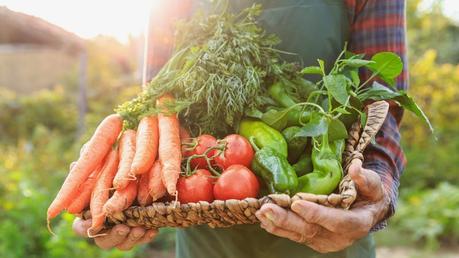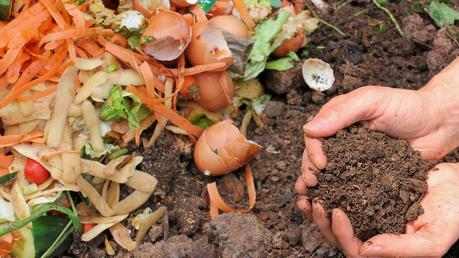Don't waste food | Reduce the use of packaging | Avoid plastics | Make conscious food choices | Compost | Use less fossil fuels
The low-carb keto diet regularly comes under criticism from some quarters as being damaging to the environment and worsening global climate change. At Diet Doctor, we believe that many of those criticisms are assumptions that are not supported by objective evidence.
Nevertheless, it helps to be aware of how some of our individual choices and actions can reduce our environmental footprint.
Here are six actions you might consider, as a low-carb keto eater, that may help reduce greenhouse gas emissions and contribute to a healthier environment.
Don't waste food
Globally, an estimated one third of all food produced is wasted, contributing some 8 per cent to green house gas (GHG) emissions. Reducing food wastage is one of the top actions you can take to contribute to a healthier environment.
Here are some top ways to help reduce food waste:
- Plan your meals and shop to that plan.
- Serve smaller portions so that people come back for seconds rather than leave food on their plate.
- Serve food buffet style so that people take only what they want.
- Use leftovers quickly or freeze for future meals.
- Simmer vegetable stalks and trimmings (broccoli, cauliflower, kale etc) in soups and stocks.
- Blanch and freeze vegetables at risk of spoilage.
- Keep a list of fridge items with expiry dates posted on the fridge.
- Keep a list of frozen items posted on the fridge and incorporate them into meal planning.
- Buy frozen vegetables and only use what you need for each meal.
- Buy the misshapen vegetables in the store.
Reduce the use of packaging
Low carb keto eaters generally shop the rim of the store, relying less on processed and packaged food, which naturally then reduces their packaged waste.
Look for other ways to reduce your use of packaging to make a positive contribution, such as:
- Bring a cloth bag to the store.
- Use a water filter rather than buying water in bottles.
- Use a re-usable travel coffee mug rather than using disposable cups and lids.
- Use re-usable containers for leftovers, even restaurant take away or doggy bags.
- Examine the way items are packaged, such as individually wrapped items, and select the least bad packaging.
- Use re-usable net bags for produce.
- Recycle as much packaging as possible.
Avoid plastics made from fossil fuels
Currently, 90 % of all plastic is made from fossil fuels and is not biodegradable. Reducing or attempting to cut out plastic in your life can make a big difference.
As noted in the previous point, avoid plastic packaging where possible. Other ways to avoid plastic include:
- Don't use plastic straws, cutlery, plates and other plastic disposable food items.
- Don't use plastic wrap to seal food, instead:
- put another plate on top of a dish of food.
- use glass jars or glass containers.
- wrap vegetables in a tea towel.
- wrap leftovers in beeswax food wraps or make your own.
- use shower caps as food covers.
- Look for bioplastic - made out of organic materials like cellulose, that does biodegrade. Estimates suggest that 4.3 gigatons of GHGs annually could be eliminated if bioplastic packaging replaces just 49% of the packaging market by 2050.

Be conscious of your food choices
Depending on where you live and your food budget, your ability to access environmentally friendly meat and vegetables may be limited.
Where possible, the following actions may help:
- Buy local vegetables in season, which have traveled a shorter distance.
- Shop at local farmers' markets.
- Consider growing some of your own herbs and vegetables.
- Make one or two meals a week low carb or keto vegetarian.
- Skip one or two meals a week, or skip breakfast daily.
- Consider paying extra for grass-fed beef and sustainably raised meat and animal products.
- Investigate local Community Supported Agriculture (CSA) organizations in your region, in which local farmers and consumers become partners in the farm's products. CSAs are all over the world.
- Buy from farmers using regenerative agriculture practices, which is a holistic process of growing and raise food (animal or vegetable) that improves soil quality and health, stores carbon emissions in the soil, improves water management and retention, and reduces the use of herbicides and pesticides. More than 150 organizations in the world are promoting regenerative agriculture practices and policies, and training farmers how to adopt the principles.

Compost
Food and organic matter that is discarded into landfills decays and releases methane, a powerful GHG that traps solar heat in the atmosphere. Food and organic waste that is composted, however, using microbes, heat, moisture and oxygen, does not release methane and stabilizes carbon in the soil making it rich and fertile.
Many jurisdictions now have, or are putting in place, industrial-sized composting facilities to divert kitchen and organic waste from landfills to create compost. Copenhagen has been doing this for more than 25 years.
Even those of us without city or regional composting programs can contribute to this proven way to reduce waste and reduce GHGs by using a compost bin. The resulting fertile soil can be added to outdoor gardens or patio pots, or even added to indoor plants to give them a boost of nutrition.
Reduce your use of fossil fuels
The burning of fossil fuels - in transportation, industrial processes, in heating homes or generating electricity - is considered to be the greatest contributor to manmade increases in GHGs.
There are many ways you can reduce your use of fossil fuels, that go over and above low carb keto eating, particularly through the type and use of your car, the use of other transportation, and the heating and cooling of your home. For example, lowering your thermostat and putting on a sweater.
While fossil fuels play a crucial role in reducing our environmental impact, we at Diet Doctor are aware that this is not our specialist topic and can provide only basic information from our limited research. Some ideas for reducing your reliance fossil fuels are listed below but we highly recommend using the links in the "More information" section to find out more.
- Plan your shopping trips to reduce the use of your car or reduce multiple trips to the store.
- Where possible, leave the car at home and walk, bike, take public transportation.
- Use an electric bike or scooter.
- Consider buying a hybrid or fully-electric vehicle.
More information
Hundreds of actions, large and small can contribute to reducing global emissions and improving the environment. Here are a few more resources to help inform or inspire you.
Draw Down: A highly acclaimed 2017 book, it compiled the research evidence and crunched the numbers to come up with the top 100 ways to reduce carbon impact through to 2050.
Zero Waste Home: In 2008, Bea Johnson and her family adopted a zero waste lifestyle; their household has since produced a mere pint of trash per year. The book has been translated into 15 languages and Johnson now is a popular speaker worldwide.
/ Anne Mullens
Coming up
We have a longer 3-part series about low carb, meat and the environment coming up soon. Stay tuned!

